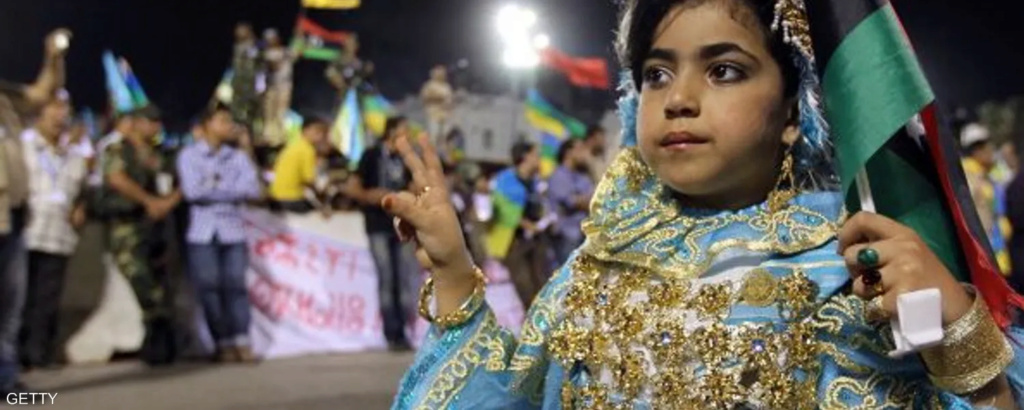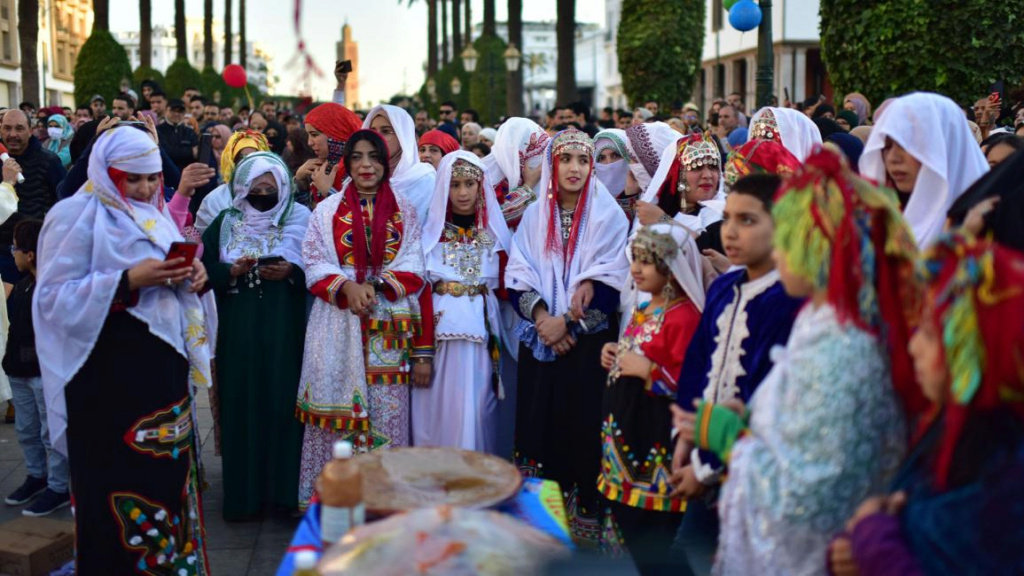Abdullah Hatous: A radical shift in America's position on the Amazighs of Morocco

Most of the population, including the royal family, reported having some Amazigh heritage...
The US administration, within the framework of its efforts to promote soft power and the supreme interests of the United States, has been preparing and publishing annual reports on the human rights situation in all countries that are members of the United Nations. The US administration bases these reports on the Foreign Assistance Act of 1961 and the Trade Act of 1974 .
In this context, the US State Department issued, on March 20, its annual general report on the situation of human rights in the world, for the year 2022, including a report on human rights in Morocco; A report based, according to what it says, on the results of the US State Department tracking the human rights situation throughout the country, in close cooperation with the Moroccan government and other partners such as the National Council for Human Rights and civil society associations.
It appears, by comparing the annual report on Morocco for the year 2022 and the annual reports for our country for the past six years, that there has been a remarkable and qualitative development in the US State Department's assessment of the Amazigh situation in Morocco, after years of "confusion" in dealing with the Amazigh issue in our country.
The American reports for the years from 2016 to 2020 include the Amazigh issue in the section on “discrimination and societal violations,” and exactly in the subsection on “members of national, racial and ethnic minority groups.” As for the report for the year 2021, it was included in the subsection on “racism.” Systematic or ethnic discrimination and violence”, while the latest report, drawing for the year 2022, abandoned the concept of “ethnic minorities”, to replace it with the concept of “indigenous people”, which is considered a radical shift in the US administration’s position on the Amazigh issue.
What are the possible reasons for this shift in the American approach to the Amazigh issue in Morocco? What happened until the Amazighs became an indigenous people in the eyes of America, which had always dealt with them as an ethnic minority? Will this transformation have repercussions for the future of the Amazigh language in Morocco? Will it have geostrategic repercussions in the countries of North Africa, the Sahel and the Sahara, where millions of Amazighs live?

It is not easy to encompass all of the above questions in the space of an article whose author only wants to draw attention to what is going on and going on. We will suffice with presenting a few of the data that appear from the iceberg of the interlocking data on which the US administration relies in writing its reports, so the American position on the Amazighs has shifted Morocco cannot happen without tremors in the mountain of data
And the American geostrategic stakes in all the countries of North Africa, the Sahel and the Sahara, where the Berbers are present.
America and activists of the Amazigh movement
The American diplomatic mission is considered one of the most active missions in Morocco. It has its own networks and partners who provide it with the data it needs about the most accurate details of the human rights issue. This is no secret. The American annual reports always confirm that it works closely with the Moroccan government, the concerned governing bodies, and civil society activists, including activists. Amazigh. We recall here the tumultuous controversy after the "WikiLeaks" leaks about Morocco, and the accompanying media exchange between Islamists and Moroccan Amazighs, in 2011, after the two sides exchanged accusations of seeking help from the United States of America.
Those familiar with the WikiLeaks documents and the explanations of Counselor Kirik Karp, the editor of the confidential document, which documented the course of a meeting between the US ambassador and Amazigh activists in Morocco in 2007, will realize that the US administration is closely following the developments of the Amazigh file and believes that the Amazigh issues should become clear in the Moroccan government's policies in Education and the media, but within the framework of what the International Bill of Human Rights allows for ethnic minorities
The Amazighs, in the view of the US administration, are a minority that must enjoy their rights as a minority. This is how she classifies and describes them in her reports, up to the year 2022, even though she knows that the new Moroccan constitution considers Amazighness a common asset for all Moroccans without exception, and although she knows that Amazigh activists in Morocco refuse to consider the Amazighs a minority, and they insist on that in the reports of their associations and in global forums on human rights. human and the peoples in which they participate.
in the possible reasons behind
The radical shift in America's position on the Amazighs of Morocco
America does not talk about it and does not write its reports on human rights in the world out of love for people and for the International Bill of Rights of individuals and groups. It was published by the magazine “Foreing Affairs” in its January 2000 issue: “Whoever believes in the need to read the national interest through the strands of international law and organizations such as the United Nations (...) the United States is not against (the human interest), but it puts it in the second row after its national interests.

Therefore, we, the consumers of America's reports, must realize that if we want to be active rather than passive, there are fundamental reasons behind the shift from classifying the Amazighs as an ethnic group to classifying them as an indigenous population, for words have power.
American administration experts know very well that there is no internationally agreed definition of population groups that constitute minorities (refer in this regard to the Declaration on the Rights of Persons Belonging to National, Ethnic, Religious and Linguistic Minorities), and they also know that the classification of Amazighs as a minority is necessary, according to international law. for human rights, the Amazigh self-identification as a minority; Despite all this, these experts wrote in their reports, for many years, that the Amazighs are a minority.
America has its plans for the future of North Africa, the Sahel and the Sahara, and this is no secret, and it knows that the Amazigh file can be a factor that enhances stability in some countries, such as Morocco, and it can also be a bomb capable of exploding in the face of other regimes in the region, as is the case in Mali. Libya and Algeria. The Amazigh file is present in the strategies of the major powers competing for spheres of influence in North Africa and the Sahel and Sahara, which cannot ignore the Tuareg weapons in Mali, the demands of the “Kabyle government in exile” to secede from the Algerian state, and the growing role of the Amazighs in western Libya.
Reports of the US administration on human rights have a role to play in the war of competition over spheres of influence in North Africa and the Sahel and Sahara. Human rights files are often used to put pressure on some regimes to achieve political gains for America. Behind every "human rights" position is a package of measures, as the US administration affirms in the introduction to all its reports: "The defense of human rights includes not only clarity in the words we use to describe them, but also the actions we take to advocate for common freedoms wherever they are denied." These freedoms, and against anyone who denies them. Defending human rights includes our commitment to addressing the devastating effects of oppression around the world."
America's perception of the indigenous people of Morocco
Finally, the US State Department realized that the Amazighs are not a minority in Morocco and confirmed in its latest report that the Amazighs are an indigenous people. The experts of the US administration abandoned the semantic ambiguity (le flou sémantique), which helped them in the trench of the Amazighs, for many years, among minorities in Morocco, along with sexual and religious minorities. and others.

The experts of the American administration finally realized that the Amazighs of Morocco are indigenous people, even if their situation differs from that of most indigenous peoples in the world, so they employed the concept of indigenous peoples in their report for the year 2022, coupled with some details that refer to the historical, political and social dimensions that frame the concept in the Moroccan case. .
It seems that the American administration finally absorbed the contents of a press interview of King Mohammed VI with the French newspaper Le Figaro, on September 4, 2001. In answer to a question about the comparison between the Amazigh issue in Morocco and Algeria, the King of Morocco said: "Their demands are not the same as those of the tribes. We have sensitivity." Amazigh - not barbarism - is an assimilational sensitivity. I am Moroccan before I am Amazigh or Arab, and there are Moroccan Amazighs, and others of Arab, African or Andalusian origin, so my father was of Arab origin, while my mother is Tamazight, and this fact expresses the Moroccan genius.
The belated awareness that there is a Moroccan genius and peculiarity prompted, apparently, the US State Department to assign the indigenous character to the Moroccan Amazighs and to emphasize it in the subsection on the indigenous population. In its report on human rights in Morocco, it states: "Most of the population, including the royal family, reported that they have some Berber heritage...". The silence of US administration experts on the nature of the legacy referred to in their report opens the door to all interpretations. This legacy may be genetic, cultural or civilizational.
In the subsection on the indigenous population of its report, the US administration expressed its concern about historical injustices to the Berbers, which resulted from the marginalization of their language and culture and the exclusion of Berber regions from the fruits of growth in the country, thus preventing them in particular from exercising their right to advance their culture and language and their right to development. According to its own needs, especially in the Atlas Mountains and the countryside
as a seal
The Moroccan state is not disturbed by the US administration's dealings with the Berbers of Morocco as an indigenous people. We all remember the response of the Permanent Representative of Morocco to the United Nations, Professor Omar Hilale, to the provocations of the Algerian Foreign Minister at a meeting of Non-Aligned Countries in 2021, by saying: “The Algerian minister, who stands as a strong defender of the right to self-determination, denies this same right to the Kabyle people, one of the oldest the peoples of Africa, who suffer the longest foreign occupation."
What should bother the Moroccan state and be ashamed of it, far from the reports of America, the European Union and others, is the disturbing situation of the Amazigh language and culture and the rates of poverty and fragility in the country. The speed with which the Amazigh language is being pushed towards extinction, and the poverty that ravages the inhabitants of the mountains and remote areas, are all frustrating issues that harm the country's reputation and the rights of Moroccans to live a decent life.

Amazigh actor, head of the Tamghrabit bloc of citizenship gatherings (Tada Tamghribit)
Source: websites

